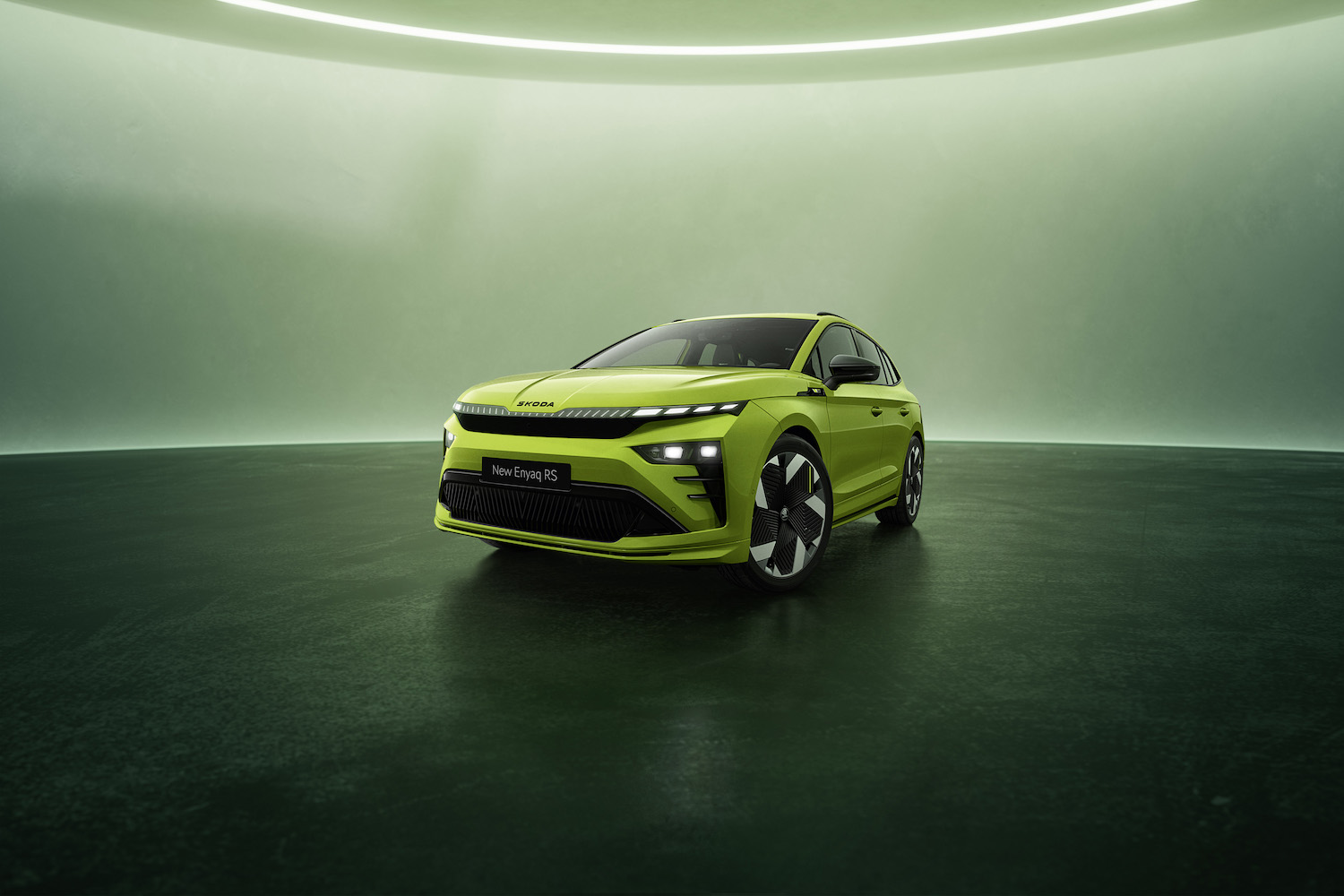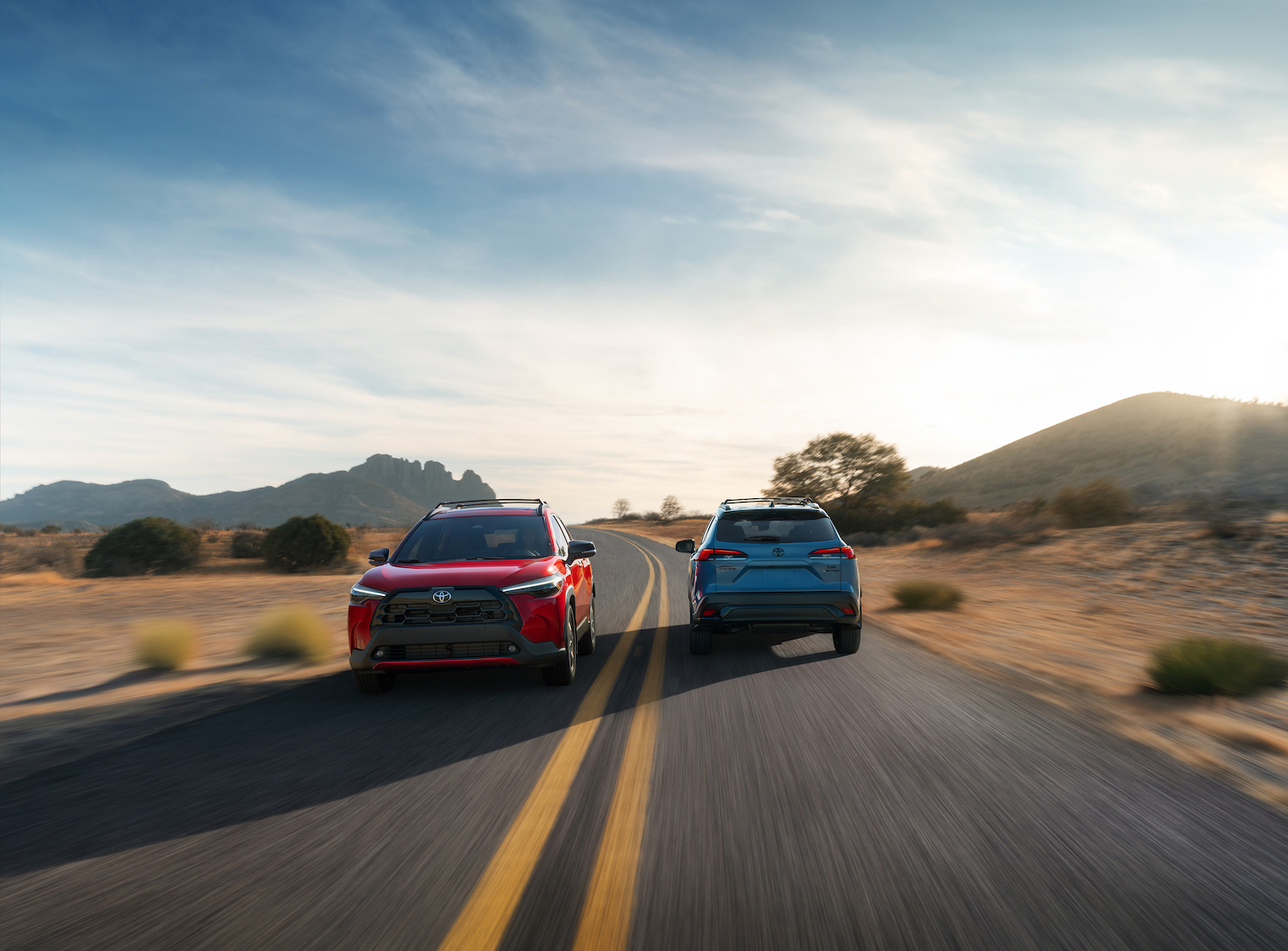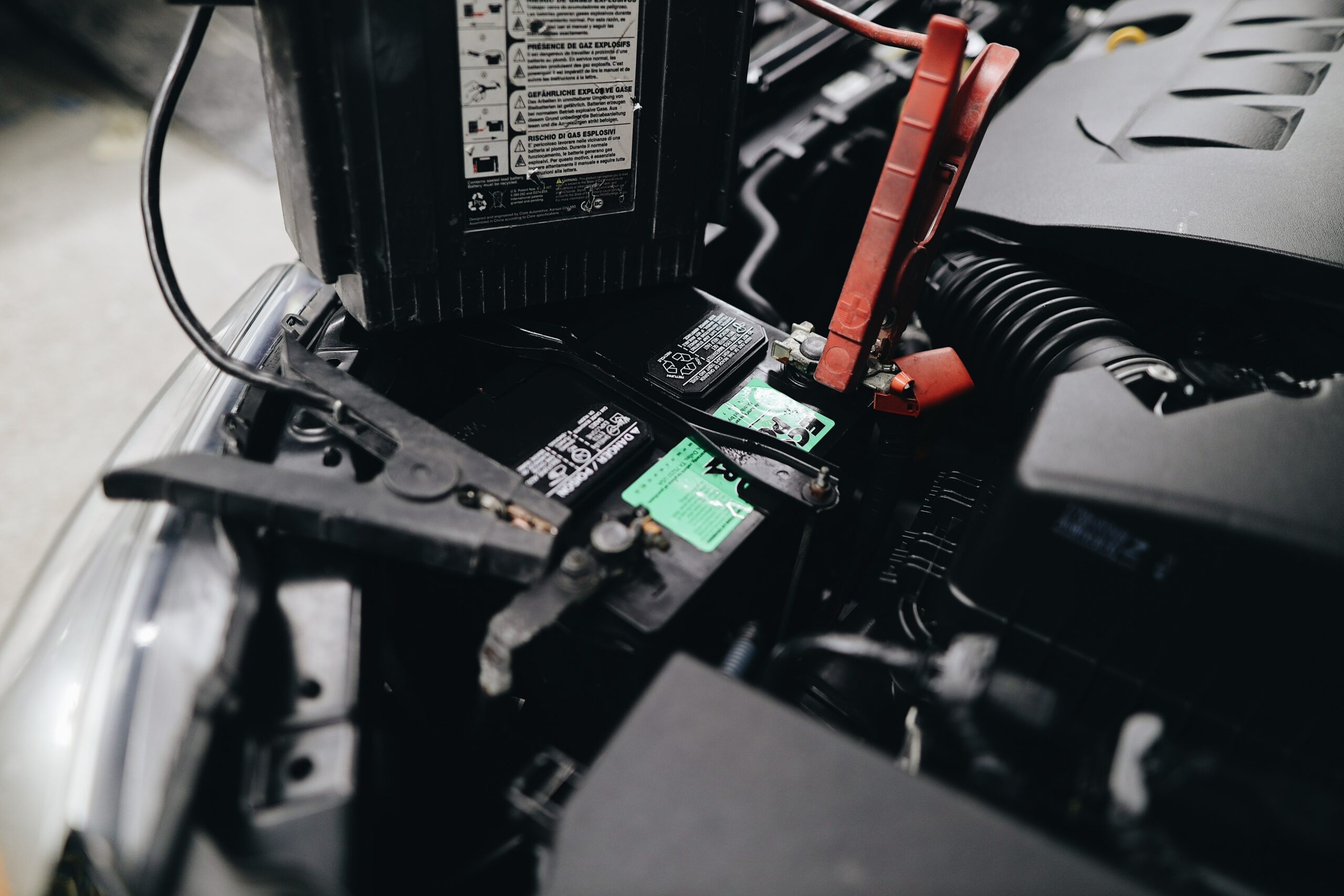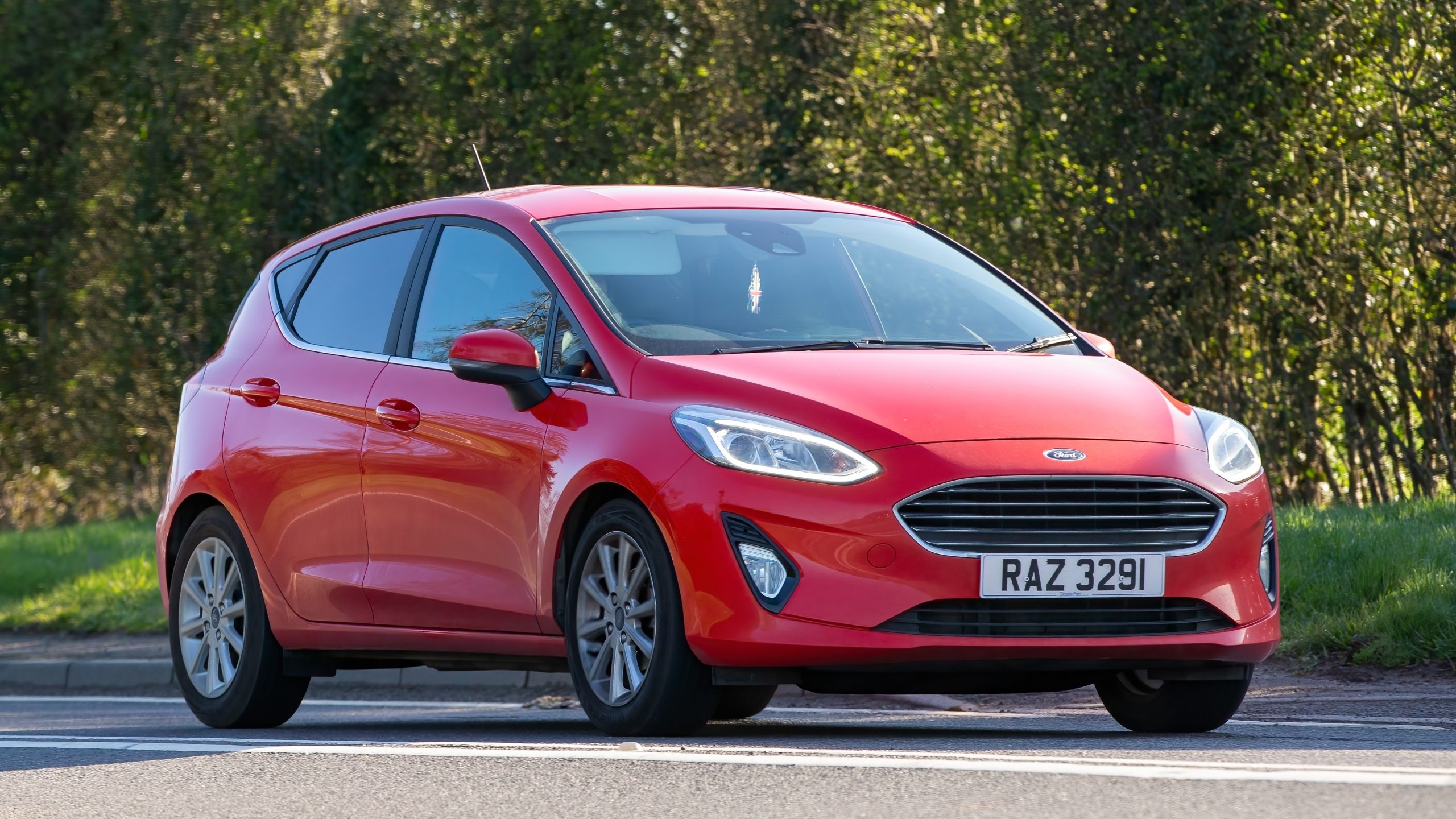How Long Can You Keep Your Car Running While Parked


How Long Can You Keep Your Car Running While Parked?
When your car is parked and running, you might wonder how long it can be kept that way. The answer to this question depends on various factors, such as the type of engine, temperature, fuel level, and battery life.
Most modern cars with gasoline engines can be kept running for an hour or two without any issues. However, electric cars are built to allow drivers to keep their vehicles running for significantly longer periods because they do not produce emissions.
If you want to keep your car running while parked for extended periods, there are several things you can do to prolong its lifespan. First off, make sure that the weather is not too hot or cold, since this can affect the vehicle’s ability to cool or warm itself.
- Ensure that the fuel tank is full enough
- Turning off all electrical components, such as car lights and radios, when using the engine from a parked position helps save energy.
Most importantly, always ensure caution by consulting your vehicle manual which gives comprehensive insights on how long a specific model of vehicle could run under specific conditions while parked.
It’s worth noting that idling cars unnecessarily contributes to environmental pollution significantly. According to The New York Times, in just one minute, a typical gasoline-engine car produces about 88 grammes (about 3 ounces) of carbon dioxide, a particular greenhouse gas that also attracts other air pollutants into our environment, leading to global warming and health hazards.
Factors that Affect How Long a Car Can Run While Parked
Paragraph 1: The duration a car can run while being parked is influenced by various factors. These factors are crucial in determining the lifespan of a parked car.
Paragraph 2:
| actors That Impact Parked Car Duration | Description |
|---|---|
| Weather | Harsh weather conditions reduce the duration of a parked car’s battery life. |
| Type and Age of Battery | An older battery with lower power capacity reduces the parked car’s runtime, especially during chilly weather. |
| Battery Maintenance | Proper maintenance of the battery can increase the lifespan of a parked car, ensuring the battery remains fully charged when not in use. |
| Electronic Use | The more electronics running while the car is parked, the quicker the battery drains, reducing parked run time. |
| Car Model | The make and model of a car can impact the parked run-time. Some car models require more battery power even when idle, reducing the parked run time. |
Paragraph 3: Keeping track of these factors enables car owners to optimise parked run-time. Keeping up-to-date performance logs on the lifespan and maintenance of the battery, as well as monitoring the use of electronics when the vehicle is not in motion, can help extend the runtime of the parked car.
Paragraph 4: Ensure your car battery stays in top condition by monitoring the above-mentioned factors. Don’t be caught stranded due to neglected battery maintenance; stay ahead of the curve and keep your battery in shape.
Age and Condition of the Car Battery
The performance of a vehicle is significantly affected by various factors, including the state and age of its battery. A car’s battery is an essential component that starts the engine and powers its electrical system. Therefore, it should be kept in optimal condition to prolong its life span and ensure reliable performance.
Below is a table highlighting the effects of different battery ages on a car’s running time while parked:
| Battery Age | Running Time |
|---|---|
| New | 2-3 weeks |
| 1-2 years | 1 week |
| 2-3 years | Few days |
| 4+ years | Few hours |
As you can see, an ageing battery has a shorter lifespan when it comes to keeping your car running while parked. After about two to three years, the batteries start showing signs of degrading, leading to shortening battery life, especially for lead-acid batteries (most common). Rechargeable lithium-ion batteries last longer but degrade faster if charged and discharged frequently.
Proper maintenance practices such as regular testing, inspections, cleaning, topping off liquids, and replacing damaged parts will help extend your automobile’s battery life span. One essential tip is to avoid leaving your car idle for more than two weeks because stagnant electric flow could further damage your battery’s capacity.
In summary, regularly having your automobile taken care of by trained personnel helps prolong your car battery’s lifespan. Although lithium-ion batteries tend to have improved revolutions per minute rates over lead-acid ones, accelerated charging or discharging may reduce their durability and lengthen their remaining idle times.
Fuel and Engine Efficiency
Exploring the Role of Fuel Efficiency and Engine Performance in Parked Car Durability
Fuel efficiency and engine performance are pivotal factors in determining how long a car can run while parked. A car with efficient fuel usage will naturally last longer without requiring refuelling, whereas a poorly maintained engine may give rise to increased fuel consumption and a reduced operational lifespan.
To understand the impact of fuel efficiency and engine performance on parked car durability, we have created a table that presents key metrics for both components. The table includes columns for engine efficiency rating, city and highway miles per gallon (MPG), as well as horsepower/specific torque ratio. According to our research, cars that offer higher MPG ratings tend to be more resilient when left unused for extended periods.
Apart from efficient fuel usage and engine maintenance, several other factors impact a car’s durability while parked. These include ambient temperature, humidity levels, altitude, type of parking surface material, and battery health. Drivers must keep all of these variables in mind if they want their parked cars to remain functional over time.
According to AAA’s 2021 report on electric vehicle range degradation (https://www.aaa.com/AAA/common/aar/files/2021-EV-Degradation-Analysis.pdf), high ambient temperatures can lower EV battery range by up to 56% over three years of ownership. This statistic underscores how important it is to manage external environmental factors when aiming for sustained parked car performance.
Ambient Temperature and Weather Conditions
The environmental conditions that surround a parked car significantly impact its longevity. The ambient temperature and weather variables, including humidity, wind, and precipitation, can affect how long a car can survive motionless without malfunctioning.
Extreme temperatures can lead to battery deterioration or freezing fluid inside, causing problems in critical areas such as the engine or brakes. Moisture that ensues from rain or humidity encourages rust formation and oxidation of interior parts. Wind storms or hurricanes could cause tree limbs to fall onto parked cars, resulting in damage to external components like windows or doors.
It is noteworthy that despite the alluring shade provided by trees during sunny spells, fallen leaves and fruits, along with the insects they attract, could clog air filters, leading to reduced fuel efficiency.
A friend once shared an experience about leaving their SUV by the roadside for an entire weekend under scorching conditions in Texas; they had to change the battery after due diligence uncovered signs of sulfation, indicating imminent gloom for the entire engine.
Tips to Keep Your Car Running for Longer While Parked
Paragraph 1: Extending the Lifespan of Your Car Engine While Parked
Modern engines are designed to be durable, but if you want to keep your car running well for as long as possible, there are steps to take while parking. Follow the tips below to maximise your car’s lifespan and keep it running smoothly.
Paragraph 2: 5 Tips for Efficiently Running Your Car Engine While Parked
- Check Your Oil: Make sure your oil is at the recommended level and clean. Dirty oil can clog your engine and cause harm to other parts.
- Use Fuel Additives: Additives can prevent fuel from breaking down and contaminating your engine. Top up with additives if you are storing your car for a long period.
- Keep Your Battery Charged: Keep your battery charged if you want to avoid problems when you start your car again. A smart charger can do the job efficiently.
- Cover Your Car: If your car is parked outside, use a car cover to protect it from dust, UV radiation, rain, and snow. A cover can also deter potential thieves.
- Prevent Flat Spots: If you will store your car for long periods use tyre stoppers or move your car every once in a while to avoid flat spots that can ruin your tyres.
Paragraph 3: Additional Considerations for Taking Care of Your Car
Keep your car’s maintenance up-to-date to ensure a maximum return on your investment. Pay attention to any changes in performance, sounds, or smells, which may indicate potential issues. Properly inflated tyres, regular oil changes, and scheduled tune-ups can increase the likelihood that your engine will function correctly.
Paragraph 4: A Real-Life Experience to Help You Understand
According to experts, mechanical issues caused by parked cars are often a result of environmental factors. A friend of mine left her car parked at an airport for two weeks and then found it would not start. The problem was later determined to be due to low tyre pressure. By not checking the tyre pressure before leaving her car parked, my friend’s vehicle suffered unnecessarily.
Use a Battery Charger or Trickle Charger
Using a Charger to Keep Your Battery Charged
Charge your vehicle’s battery with the latest trickle chargers to maintain its life for extended periods, ensuring you have access to smooth and hassle-free travel at any time.
- Ensure that the charger you select is compatible with your vehicle’s battery type.
- Choose a charger with an auto shut-off feature to prevent overcharging or damage to the battery.
- Depending on the charger, plug it into either a power outlet or directly into your vehicle.
- Ensure that your charger’s cables are firmly attached to the terminals of your battery before starting it.
- When no longer required, unplug and store your trickle charger safely for future use.
In case of parking your car for extended periods without regular use, maintaining its battery charge is essential. Continually charging batteries will prevent their death and lengthen their lives while avoiding hefty replacement costs.
Pro Tip: Avoid using cheaper-quality or second-hand chargers as they can damage the battery cells and wiring in your vehicle. Invest in quality products for longer-lasting results.
Turn Off All Accessories and Electronics
When you park your car for an extended period, it is essential to turn off all electronic devices and accessories to preserve its battery life. Failing to do so can damage the battery, make it hard to start the engine, and cause other electrical problems.
Below are essential steps to follow to ensure that you turn off all accessories and electronics properly:
- Turn off the air conditioning or ventilation fan: Turn off the air conditioning or ventilation fan before shutting down your engine.
- Disconnect all electronic gadgets: Disconnect any electronic item like smartphones, GPS devices, chargers, etc., from the car charger.
- Double-check all lights: Ensure that you have switched off all interior and exterior lights such as headlights, taillights, and radio displays.
- Remove keys from ignition: Take out the keys from the ignition switch.
However, besides turning everything off when parking your car for an extended time, ensure that you clean it correctly and cover it with a protective cover whenever possible to prevent dust accumulation.
According to AAA’s survey in 2019, millions of Americans were stranded on the roadsides due to malfunctioning batteries brought about by disuse during long-time parking durations.
Park in a Shaded and Well-Ventilated Area
To protect your car’s longevity, ensure to park it in an area with sufficient shade and proper ventilation. Exposure to direct sunlight can cause damage to paint, tires, and other parts of your vehicle. In contrast, parking under shady trees or covered areas can shield the car from harmful UV rays. Correct ventilation can also make a significant difference by reducing moisture buildup inside the car.
Furthermore, parking your car in such areas can keep it cooler during hot weather and prevent battery drain. A well-ventilated spot allows fresh air to circulate in the car, eliminating unpleasant odours and reducing the risk of mould growth.
Remember to clean out any debris from the shaded or covered area before you park your car. Parking under noisy birds’ nests or surrounded by plants that attract insects may harm your vehicle. Hence, be sure to choose a location that is not only shaded and well-ventilated but tidy as well.
Pro Tip: Use a windshield sunshade when parked outside for maximum protection from intense UV rays.
Use Fuel Stabiliser and Synthetic Oil
To extend your car’s lifespan while parked, consider utilising a fuel stabiliser and synthetic oil. These simple maintenance measures can work wonders for your vehicle in the long run.
- Stabilising fuel helps prevent it from breaking down over time and causing engine damage.
- Synthetic oil is engineered to withstand extreme temperatures, providing optimal lubrication for your engine parts.
- They also reduce the amount of moisture buildup in the engine, protecting against rust and corrosion.
- In addition, synthetic oil has longer intervals between changes compared to conventional motor oils, making it a more cost-effective option in the long term.
- Using these products together provides a complete solution to keep your car running smoothly during storage or long periods of not being driven.
While using fuel stabilisers and synthetic oils may seem like an unimportant aspect of maintaining a parked car, implementing them as part of regular upkeep significantly extends your vehicle’s life.
To complement these measures, consider keeping your car covered or garaged when possible to protect it from harsh weather conditions or sun damage.
By following these simple steps with consistency, you can ensure that your parked vehicle remains in top shape and performs optimally when needed.
Run the Car Regularly and Take Care of Maintenance Needs
Regularly running your car and performing necessary maintenance can prolong the lifespan of your vehicle while it’s parked.
Here is a four-step guide to taking care of maintenance needs:
- Check the oil level and change it according to manufacturer recommendations.
- Check the tire pressure and add air if needed. This helps prevent flat spots from developing on the tires.
- Fill up the gas tank to prevent moisture from accumulating in the tank, leading to rust.
- Park your car in a safe and secure location, keeping it off dirt or grass as this can cause damage to the undercarriage.
Additionally, ensuring that all fluids are topped up, such as coolant and brake fluid, and keeping the battery charged can help keep your car running smoothly.
Pro Tip: Consider using a car cover to protect against weather elements and prevent dust buildup on your vehicle.
Keeping your car running while parked may lead to a longer lifespan for your car, but it won’t do your exhaust pipe any favours.
When Should You Not Keep Your Car Running While Parked
Keeping Your Car Running While Parked: When it’s Not a Good Idea
Running your car while parked may seem like a convenient option at times, but the truth is, it’s not always advisable. It can lead to a build-up of harmful emissions, battery drainage, and even cause damage to the engine.
If you’re leaving your car unattended for a long time, make sure to turn off the ignition to preserve the battery and prevent unnecessary strain on the engine. Additionally, it’s not recommended to keep your car running in enclosed spaces or crowded areas, especially if there’s little ventilation.
Did you know that idling a vehicle for more than 10 seconds consumes more fuel than restarting the engine? According to the US Department of Energy, turning off your car’s engine instead of idling can save fuel and reduce carbon pollution.
So, the next time you’re tempted to keep your car running while parked, think twice and make a better choice for the environment and your vehicle.
In Closed or Confined Spaces
When operating a car in areas with limited ventilation, harmful exhaust fumes can quickly accumulate. This is not only hazardous to the environment but also deadly to humans. Closed or confined spaces require caution and attention. In these areas, it is important to turn off your car’s engine immediately upon arriving to avoid damage or suffocation.
Staying inside an enclosed space with your engine running, even for a short period, can put you in grave danger. The accumulation of toxic gases can occur in minutes and may lead to headaches, dizziness, or even loss of consciousness. Don’t take chances wherever the air supply is limited and switch off your vehicle.
In some cases, closing windows when parked might be necessary for protection against theft or weather elements. However, doing so without considering available ventilation must be avoided at all costs. Recent reports indicate that people have lost their lives after keeping their cars running while parked in garages overnight due to a lack of proper ventilation.
One winter evening in the Northside of Chicago, a man died from carbon monoxide poisoning after he forgot his vehicle was still running in the attached garage while he slept upstairs. The man was a victim of poisonous gas buildup as carbon monoxide silently entered his home through shared walls and other openings causing him irreversible harm. Such incidents can happen anytime if we do not take preventive measures seriously.
With Children or Pets Inside
Leaving your car running while parked can be harmful, especially if you have vulnerable passengers present like children or pets. The carbon monoxide emitted by your vehicle’s engine can lead to serious health problems or even death if inhaled for a prolonged period.
To avoid this, always switch off your engine when leaving your car and remove all the passengers with you, especially children or pets. Also, ensure the doors are locked and the windows are closed before leaving. It is best to not leave them unattended in any situation.
Even on chilly days, it is safer to dress your child/pet warmly than to leave them unattended inside a running vehicle. If necessary, use winter coats or blankets to keep them warm instead of relying on the engine to heat the car.
When the Engine is Overheating or Showing Signs of Malfunction
Engine troubles and overheating are signs that it’s time to shut off your parked car. Ignoring these could cause permanent damage to your engine and other under-the-hood components. Continuous operation of the engine when it is malfunctioning may lead to the buildup of heat, which in turn can cause even more damage to sensitive parts like gaskets, pistons, or valves.
If ignored for too long, minor issues could develop into major problems, including warped metal components or a loss of the ability for parts to function properly. Repairing severe damage can cost much more than catching and preventing a small issue early on.
In some cases, vehicles might experience a harmless issue that can be repaired quickly without causing any lasting damage. However, unless you’re an expert mechanic or have consulted with one recently regarding your vehicle’s specific make and model, it would be best to err on the side of caution and shut off the automobile if there are warning signals. A trusted source such as the car owner’s manual or an authorized dealer may also offer helpful information about what constitutes an emergency when operating a parked car.
One fact is that while experts recommend against leaving your car running while parked for safety reasons related to fires or carbon monoxide poisoning inside closed spaces such as garages, overheated engines also pose significant risks. In addition, vehicle models are old enough not equipped with cut-off systems that automatically turn off an idling engine after a certain amount of time has passed without activity to conserve fuel usage.
How Long Can You Keep Your Car Running While Parked – Conclusion: Proper Care and Attention Can Help Maximize How Long Your Car Can Run While Parked.
By providing proper care and attention to your car, you can significantly extend the duration for which it can run while parked. This can be done through various methods, such as regular maintenance checks and ensuring that your car’s battery is in good condition. By taking these steps, you can reduce the risk of a dead battery or other issues arising when your car is parked.
It is also important to consider the environment in which your car is parked. Extreme temperatures, whether hot or cold, can harm your vehicle’s performance. Taking measures such as using a windshield sunshade or parking in a garage can help protect your car from these harsh conditions.
In addition to these tips, it may be helpful to invest in a quality battery charger or trickle charger if you plan on leaving your car parked for an extended period. These devices help maintain the battery’s charge level and prevent it from draining while idle.
Overall, by implementing these precautions and guidelines, you can maximize how long your car can run while parked. With proper care and attention, you can ensure that your vehicle remains in top shape even during periods of extended downtime.
How Long Can You Keep Your Car Running While Parked – Frequently Asked Questions
1. How long can I idle my car parked before damaging the engine?
Idling your car for more than 30 minutes can result in damage to the engine and other components.
2. Can I keep my car running while parked to stay warm in cold weather?
Yes, you can keep your car running while parked to stay warm in cold weather. However, it is recommended not to idle the car for more than 10 minutes.
3. How long can I keep the car running while parked with the air conditioning on?
It is recommended to not leave the car running while parked with the air conditioning on for more than 20-30 minutes.
4. Can I keep my car running while parked to charge my phone or other devices?
Yes, you can keep your car running while parked to charge your phone or other devices. However, you should not let the car idle for more than 5-10 minutes.
5. Will keeping the car running while parked drain the battery?
Yes, keeping the car running while parked will eventually drain the battery. It is recommended not to exceed 30 minutes of idling to prevent battery drain.
6. Is it illegal to keep your car idling while parked?
It is illegal in some states to keep your car idling while parked for more than a certain amount of time. Check your state’s laws to avoid any fines or penalties.











I do believe all the ideas youve presented for your post They are really convincing and will certainly work Nonetheless the posts are too short for novices May just you please lengthen them a little from subsequent time Thanks for the post
[…] maintaining your car’s cooling system can help save time and money in the long run while keeping you safe on the road. Don’t forget to check other fluids, such as oil, brake fluid, and […]